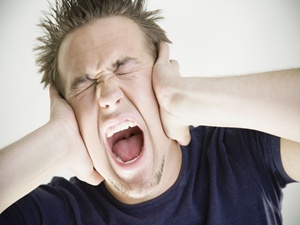[Ed: Welcome to our newest contributor, Clint Roberts, whose perspective on bearing arms was forged in combat, leading toward a career defending the Second Amendment and those who must rely on it.]
New legislation has been introduced that would affect lifestyles within our Second Amendment and firearms communities. There are two measures at hand. The first H.R. 367, the Hearing Protection Act of 2017, would enhance prevention of hearing loss when using firearms for all lawful purposes. The second, S. 670, the Over-the-counter Hearing Aid Act of 2017, aims to make hearing aids more accessible, making them over-the-counter at lower price points.
H.R. 367 is a historic piece of legislation making its way through Congress. It was introduced on January 9. This bill would end the 1934 National Firearms Act regulation of suppressors, which are generally called “silencers.” People would still undergo the same background checks required for firearm purchases, but the $200 tax stamp and up to one-year waiting period for approval would be eradicated. Prices range from about $500 to $1,400 and they are made to fit many rifle and pistol calibers.
Firearms users suffer significant hearing loss, despite wearing ear plugs or muffs. I spent nearly ten years in the United States Army infantry, stationed at Fort Campbell in Kentucky. Ear plugs were mandatory on the firing line, whether we were shooting M-4 carbines, pistols or machine guns. Today, I have permanent tinnitus—my ears randomly ring. I was hurt by the false belief that putting rubber or foam plugs into my ear canals would safeguard my hearing.
I am impressed with the scientific analysis by Doctors for Responsible Gun Ownership. In March 2017, I heard Tom Gresham on his radio show “Gun Talk” discuss DRGO and their conclusions about the effects of the explosive gunshot blast wave, which is more damaging than the noise. Suppressors are more effective for blast and noise than in-ear protection or muffs. Using all three together brings the decibels down to benign ranges.
Our sense of hearing should be protected. Whether hearing our loved ones or listening for danger, we cannot afford to lose something that we can never get back, even with the availability of hearing aids. And once our hearing is completely gone, hearing aids are useless.
Democrat Senator Elizabeth Warren of Massachusetts introduced S. 670 on March 21. Currently, hearing aids must be prescribed by physicians and may cost upwards of $5,000. The bill would allow for the sale of over-the-counter hearing aids. It would preempt state laws, meaning it would disallow any state government from restricting such transactions.
Senator Warren is a “progressive” gun control believer. Her timing in introducing S. 670 is interesting, as if presenting it as an alternative to H.R. 367. But it is far better to prevent hearing impairment in the first place than to compensate for it after the fact. I suspect that she and other co-travelers will state the same claims made since 1934: that “silencers” are widely used in gun crimes and make it impossible to hear someone being shot. The implication is that we will all be murdered silently in our sleep!
The evidence shows vanishingly rare use of suppressors in violent crime. Paul A. Clark, of the Alaska Public Defender Agency, published a study in the Western Criminology Review. He found there were 136 convictions for illegal suppressor possession from 1995 to 2005. Yet during the period from 2000 to 2005, there were 46,248 firearm prosecutions.
The second lie stated by gun control believers is that “silencers” make the report silent, akin a soft pop. The National Rifle Association invited journalists from USA Today for an educational experience at the NRA firearm range in Fairfax, Virginia. Firearm experts enlightened those present about suppressors, and why that diction is more fitting.
These accessories reduce the volume of a gunshot. Without a suppressor, a gunshot’s noise may range from 160-180 decibels. With one, the sound is diminished by 20-40 decibels, in most cases to below the 140-decibel harmful point but still very loud. As a point of reference, a jet aircraft engine makes 133 decibels upon take off; no one can withstand that without protection. Rock concerts can produce over 100 decibels for several hours. Prolonged exposure at that level, like acute exposure at 140 decibels or above, causes permanent hearing damage.
Suppressors alone are more effective than ear plugs or muffs to mitigate damage to shooters and bystanders. When suppressors are used in combination with ear plugs and muffs, hearing protection is enhanced. The benefits of removing suppressors from the NFA classification negate the falsely attributed threats to the public.
Senator Warren’s bill is a backhand slap in the face to law-abiding citizens, not to mention the firearm industry. There are certainly benefits to more readily available, less costly hearing aids. But her answer is no solution to preventing hearing loss.
It is astonishing how effortlessly politicians make decisions based on ideology instead of facts. It is the responsibility of our elected officials to make educated and informed decisions, regardless of their personal feelings. Our rights do not end where their feelings begin.
 —Clinton Roberts is in pre-law at Austin Peay State University in Tennessee. He earned the Combat Infantryman’s Badge during 10 years of Army service. He is a strong proponent of Second Amendment rights and of NRA, SAF and USCCA. He hopes to represent clients in self-defense cases in practice.
—Clinton Roberts is in pre-law at Austin Peay State University in Tennessee. He earned the Combat Infantryman’s Badge during 10 years of Army service. He is a strong proponent of Second Amendment rights and of NRA, SAF and USCCA. He hopes to represent clients in self-defense cases in practice.

